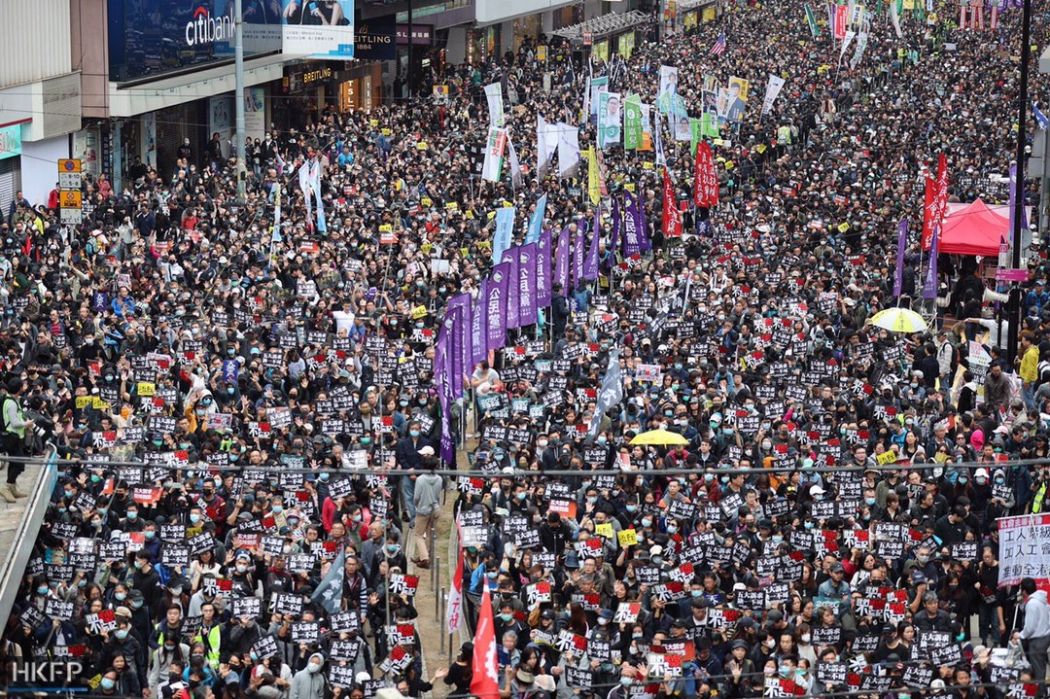The Hong Kong authorities have evaded questions over whether the national security law is to be applied retrospectively following comments from the police chief.
Last week, Commissioner of Police Raymond Siu told state-backed Ta Kung Pao that the since-disbanded Civil Human Rights Front (CHRF) might have violated the security law for “organising a series of large-scale, illegal protests” in recent years. It is despite the fact that the coalition has not organised any rallies since the security law was enacted last June 30.

Chief Executive Carrie Lam told the UN last June that the law would “have no retrospective effect.” However, when HKFP asked Lam’s office if she stood by her comments, the questions were referred to the police for a response.
“In conducting any operation, Police will act on the basis of actual circumstances and according to the law,” a spokesperson told HKFP, without addressing the questions over whether the law was being applied retroactively.
The 19-year-old pro-democracy protest coalition – which was behind the city’s largest demonstrations – announced on Sunday that it would cease operations owing to “unprecedented challenges.” However, the police and Lam have warned that they cannot escape legal liability by disbanding.
Shifting stance
After their 2020 July 1 march, the Lam administration said CHRF protesters were “lawful, peaceful and rational,” adding that the government would “humbly listen” to their views. But on Tuesday, Lam said that criticism of the authorities for once cooperating with the front was an attempt to “dig up old accounts.”
“Today with the national security law as a foundation, [law enforcement] may take action against these individuals and groups who touched these red lines and violated the national security law,” Lam said.

Lam added that the government had learned a “valuable lesson” from the 2019 protests and unrest and that the front’s disbandment had nothing to do with freedom.
While it always sought police approval when planning demonstrations, and never held protests without police permission, the front has been accused of facilitating violent post-demonstration clashes between protesters and police after several approved 2019 demonstrations ended. It also faced accusations that it failed to register with the authorities as a society.
Support HKFP | Policies & Ethics | Error/typo? | Contact Us | Newsletter | Transparency & Annual Report | Apps
Help safeguard press freedom & keep HKFP free for all readers by supporting our team

LATEST FROM HKFP
HKFP has an impartial stance, transparent funding, and balanced coverage guided by an Ethics Code and Corrections Policy.
Support press freedom & help us surpass 1,000 monthly Patrons: 100% independent, governed by an ethics code & not-for-profit.











